Google My Ad Center updates give users more, expanded controls
The new privacy controls allow users to see more ads they're interested in, less of what they aren't, and expanded control for sensitive categories.
Google’s My Ad Center today will start rolling out to users, globally, to provide control over the kinds of ads they see across Google on Search, YouTube and Discover.
“81% of consumers are more concerned with how their data is being used and 48% are turning away from services due to privacy concerns. At the same time, our research also says that people only want to see ads that are relevant and useful to them,” says Jerry Dischler, VP/GM Google Ads. “To build more trust, we want to continue ensuring that ads respect people’s privacy; and offer transparency, choice, and control. We see these principles as foundational to the future of advertising. It is a key priority for our business – and the foundation My Ad Center was built on.”
New features and controls. The new My Ad Center controls will also allow you to block sensitive ads and learn more about the information used to personalize your ad experience.
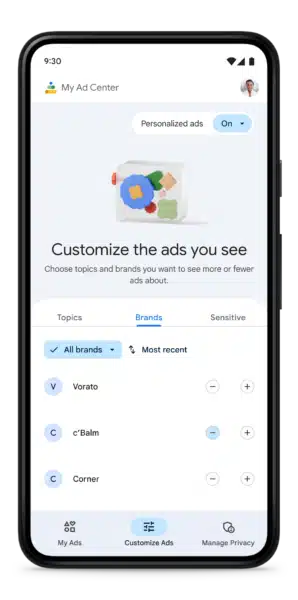
More controls for activities used to personalize ads. My Ad Center expands Google’s privacy controls to allow users more direct control over which data sources — specifically Web & App Activity and YouTube History — are used to personalize your ads across Google Search, YouTube and Discover.
Expanding user control for sensitive categories. In My Ad Center, users have the ability to see fewer ads in five sensitive categories:
- Alcohol.
- Dating.
- Gambling.
- Pregnancy and parenting.
- Weight loss.
Before, this feature affected ads shown on YouTube and Display. Now, it expands to ads shown on Search and Discover.
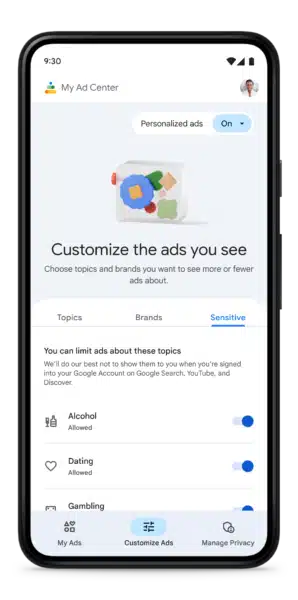

Advertiser pages. To give people even more transparency, Google is enhancing ad disclosures with new advertiser pages. Users can access these disclosures in the new My Ad Center panel and see the ads a specific verified advertiser has run over the past 30 days.
How it works. In My Ad Center, users can tap on the three-dot menu next to an ad type they want to see less of. They can also choose to see ads about things that they care about, like deals for sneakers or holiday gifts for loved ones, according to examples provided by Google.
Users can also completely turn off ad personalization. Those who choose not to see personalized ads, will still be served ads, but Google says those ads may be less relevant or useful.
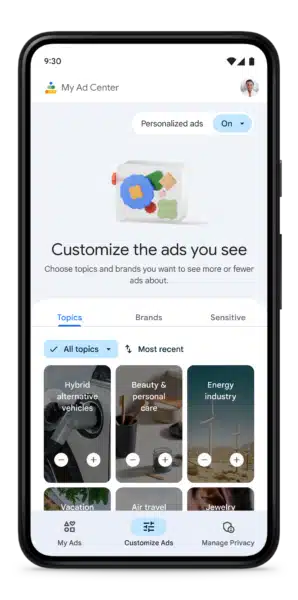
More privacy controls. With the new My Ad Center added controls, you can see what information Google uses and control it based on your preferences. You can decide what types of your Google activity are used to show you ads.
In the past, if your YouTube History was on, it automatically informed how your ads were personalized. Now, if you don’t want your YouTube History to be used for ads personalization, you can turn it off in My Ad Center, without impacting relevant recommendations in your feed.
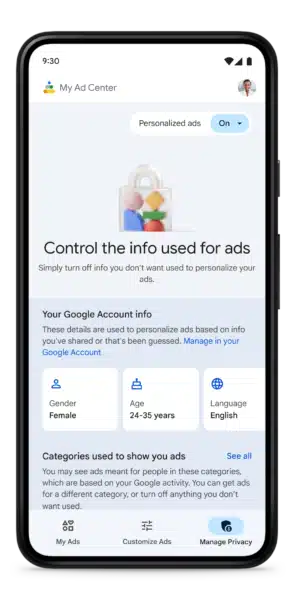
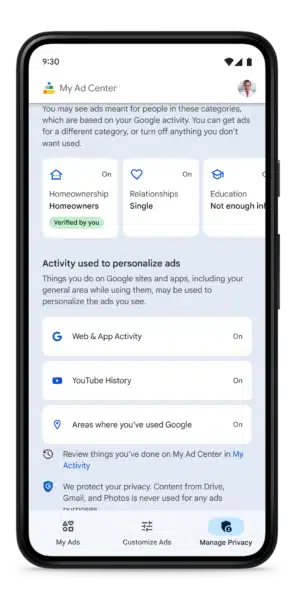
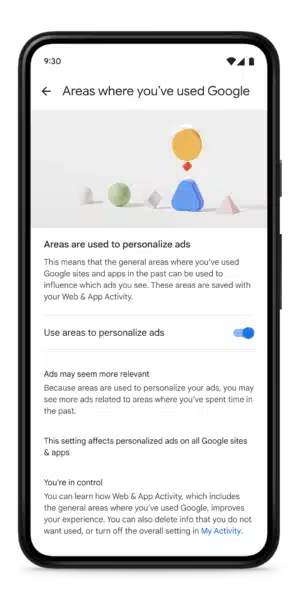
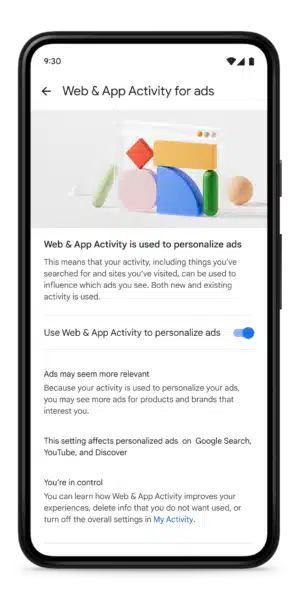
What Google says. Dischler adds, “I see our role in this evolving industry as innovating through our products. Building products that are secure by default, private by design, and put the control of data in the hands of our consumers. When it comes to advertisers, publishers, and our other partners, we are taking a privacy-preserving approach to advertising, built on first-party data, and unlocked by the benefits of machine learning.”
“We are doing all this because we believe it’s essential to the open web to build a long-term stable ads ecosystem. And we intend to help navigate the industry to a privacy-first, pro-consumer-focused future.”
Dig deeper. You can read more info about the new My Ad Center experience here.
Why we care. Since Google’s announcement of My Ad Center in May, we have been waiting for it to roll out to users globally. With the sunsetting of cookies in 2024, the new privacy features give users their best chance at privacy and having a say in the ads they are served.
Additionally, the new features could be a benefit to advertisers as well since users who take advantage of My Ad Center will have access to the ads and brands they are most interested in. Advertisers will also benefit from higher ad relevance.
Opinions expressed in this article are those of the guest author and not necessarily Search Engine Land. Staff authors are listed here.
Related stories
New on Search Engine Land